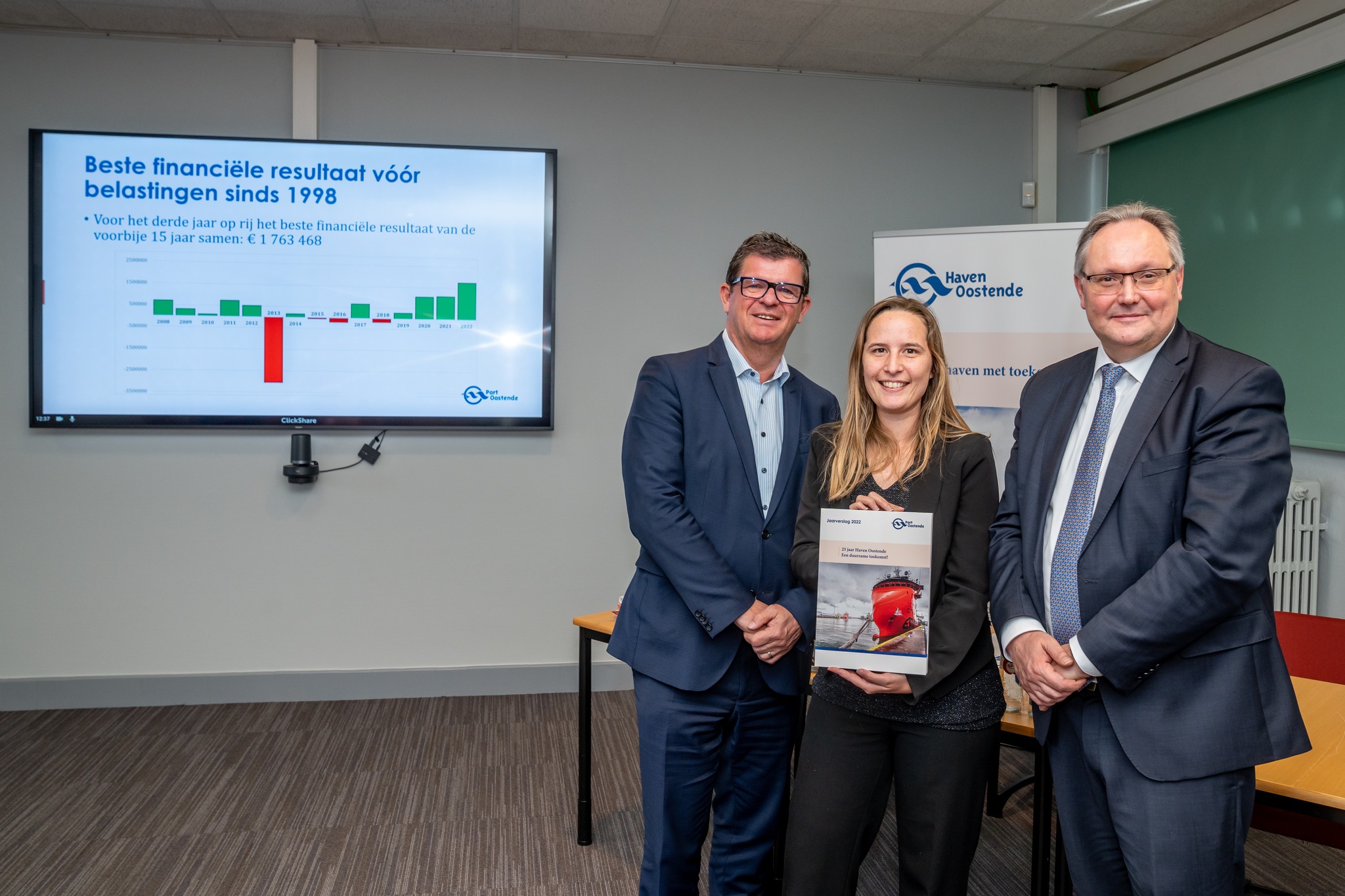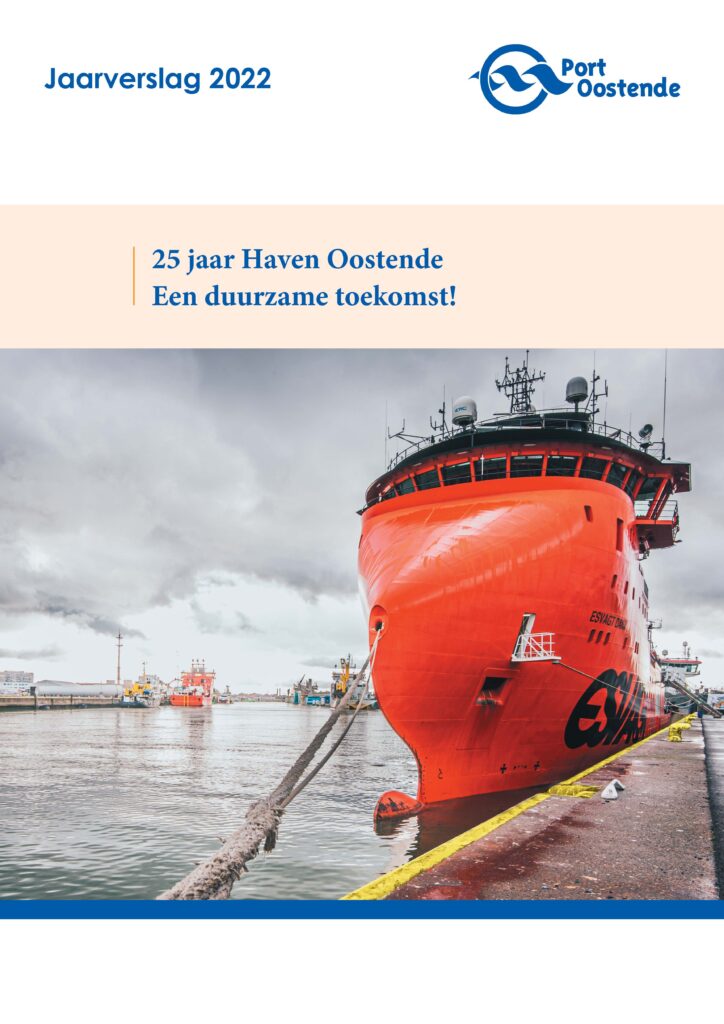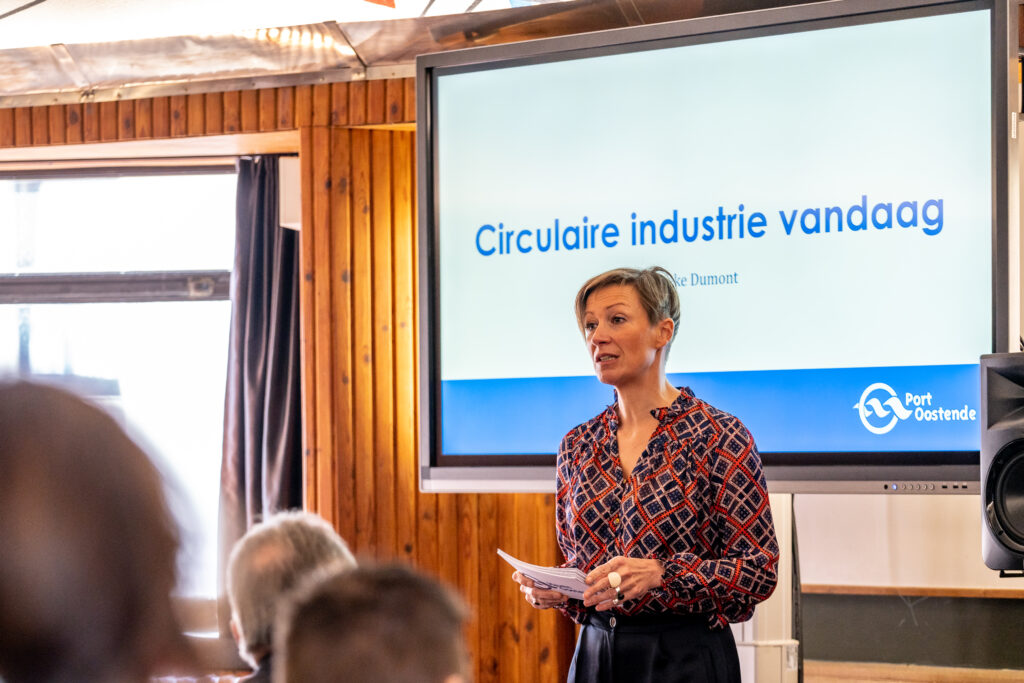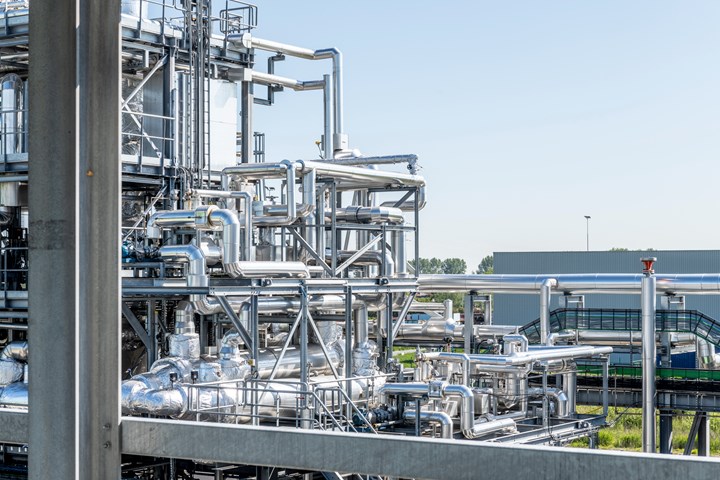2022 was the year that Port Oostende celebrated its 25th anniversary and the 10th anniversary of its subsidiary Renewable Energy Base Oostende (REBO) nv. In its Annual Report 2022, Port Oostende reports its best financial results since 1998, including an increase in maritime traffic and employment.
Port Oostende reports on various initiatives to support both the energy and circular economy transition. “Circular economy” is one of the port’s 5 strategic pillars, through which it is committed to continuity, innovation, clustering, and employment.
Opportunities for new circular businesses
In 2019, concession agreements were signed with two companies active in the circular industry: West-Recycle and Renasci. These start-ups have since developed into mature companies.
West-Recycle was acquired by the Verhelst Group in mid-2022 and is now developing as Top-Mix Recycling. Top-Mix Recycling specialises in the physico-chemical cleaning of non-hazardous waste streams and soil materials.
Borealis is now a shareholder in Renasci, which now employs around 70 people. Ostend was an important UCB site in the last century. Now, with Borealis, it is once again home to a top chemical multinational, thus completing the circle.
Bio Group Holding as the new player in the recycling industry
Bio Group Holding, which focuses on sectors ranging from bio-nutrients to organic fertilisers, is one of the new players in the recycling industry in the port of Ostend. Bio Group will occupy a 7.5-hectare site in Plassendale. The arrival of Bio Group Holding will create 50 to 60 additional jobs.
The holding company will carry out its activities through BioCircle bv and BioFertiCol bv, two independent companies with great synergies. BioCircle will dry and enrich up to 600,000 tonnes of food, fruit and vegetables, dairy products, beer, and other nutrients every year.
BioFertiCol will receive the dried material from BioCircle via a conveyor belt. BioFertiCol then analyses the composition of the nutrients and mixes them with additives to create à la carte organic fertilisers. BioFertiCol also pelletises and packages the fertilisers in big bags and containers. Ultimately, the Bio Group will export 265,000 tonnes of organic fertiliser a year via ship or rail.
Plassendale was chosen as the location because of the development of a circular economy cluster in the inner port of Ostend, and because of its unique location, which allows the use of tri-modal transport. The various raw materials and finished products will be partly transported by water. The arrival of Bio Group Holding hence generates employment and an increase in maritime traffic. Bio Group Holding expects to be operational in Ostend in 2024.
Decommissioning, re-use and recycling offshore wind parks
Port Oostende participates in the Decom Tools project within the European Interreg VB North Sea Region Program. Research will be validated by pilot programmes and working tools in the fields of logistics, safety, ship design and re-cycling. Innovative and available technologies will be combined to help tackle the decommissioning challenge, including the optimization of existing (port) off/onshore infrastructure. Transnational and multidisciplinary collaboration will improve innovation and technology transfer in this specific niche area and help the sector achieve a higher eco-balance.
Cluster operation anchors circular economy and blue economy
The active promotion and support of clusters, especially in the fields of blue and circular economy, remains essential for Port of Oostende. On the one hand, it offers advantages to companies wishing to set up in the port area and, on the other hand, it anchors these companies in Ostend which benefits employment opportunities.
To develop the cluster effect of the circular industry, cooperation has been established with the Flanders Business School/ KU Leuven under the leadership of Prof. Dr. Bart Van Looy and with Vice-Chancellor Piet Desmet as the driving force from KU Leuven.
“Creating economic growth that delivers sustainable maritime employment” is an integral part of the circular industry cluster’s mission. The vision here is: “To create a water-based circular cluster of sustainable and innovative companies”.
Sustainability in this context means, among other things, sustainable production in terms of energy, raw materials, and materials; support for sustainable systems; being active in sectors such as: construction/plastics/metals, chemicals, energy, blue economy, food, and fertilisers.
Strategically, the focus is on sustainable growth markets with the following criteria: innovative companies with sustainable employment; fitting into systems thinking and cluster operation; quadruple helix model, where cooperation with knowledge institutions strengthens cluster operation and anchoring.
Forum Circular Industry
In November 2019, the Port of Ostend organised a highly appreciated first seminar on the circular economy in collaboration with KU Leuven. Unfortunately, there was an interruption due to COVID-19. The thread was picked up again in March 2023 with a second seminar, which was attended by numerous companies and organisations active in the circular industry and companies that see potential for establishing themselves in Ostend.
This post is based on the article that first appeared on Port Oostende News on March 30, 2023.
Image credit: Port Oostende



